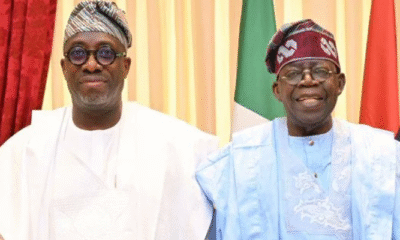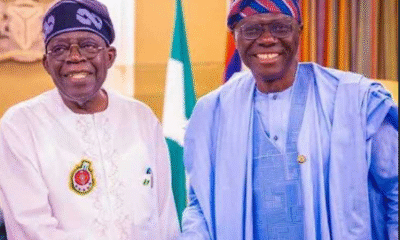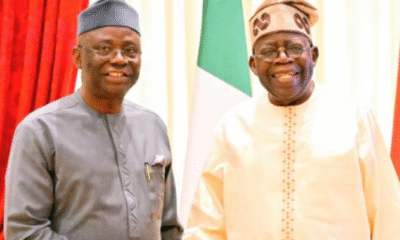Politics
Seyi Tinubu faces backlash amidst 2027 Lagos governorship speculations

Seyi Tinubu, son of President Bola Ahmed Tinubu, is trending on social media as conversations about his potential governorship bid for Lagos State take a controversial turn.
Critics have labeled him a “Chinedu,” with some even calling his children “Omo Ale” (illegitimate children), sparking heated discussions online.
The backlash comes in the wake of reports suggesting that Seyi is being positioned as a successor to Governor Babajide Sanwo-Olu, ahead of other contenders like Femi Gbajabiamila, Obafemi Hamzat, and Tokunbo Abiru. A coalition of Nigerian youth leaders recently endorsed Seyi for the position, igniting debates about his eligibility and tribal identity.
Seyi Tinubu is married to Layal Holm, whose mother, Nkechi Holm, is of Nigerian Igbo descent from Anambra State, while her father is Lebanese. This revelation, which Seyi confirmed during the 2023 election campaigns, has fueled accusations of hypocrisy. Critics draw parallels with the treatment of Labour Party’s Gbadebo Rhodes-Vivour (GRV), who faced similar scrutiny over his Igbo heritage despite being a Lagosian by paternal lineage.

During the last gubernatorial race, GRV was labeled “Chinedu” and deemed unfit to govern Lagos, primarily due to his mother’s Igbo roots and his marriage to an Igbo woman. Obidients, GRV’s supporters, have now turned the narrative against Seyi, questioning his legitimacy to lead Lagos based on the same standards applied to GRV during the elections.
Adding to the drama, a coalition of Lagos indigenous youths has rejected the endorsement of Seyi Tinubu for governor, urging him to contest in Osun State, where his father is originally from, or in Imo State if his Igbo connections support his candidacy.
The controversy underline deep-seated ethnic and political tensions in Nigeria, as many observers question whether Lagos politics will once again be shaped by tribalism in the 2027 elections.
-

 National News1 day ago
National News1 day agoImo, Cross River top list of states where men report highest rates of extra-marital s3x — NDHS report
-
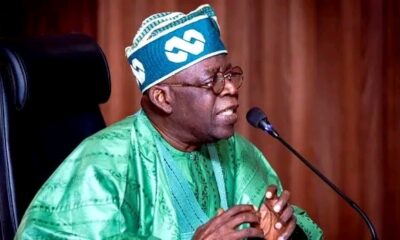
 Politics1 day ago
Politics1 day agoTinubu’s appointee announces resignation over one-party state fear
-
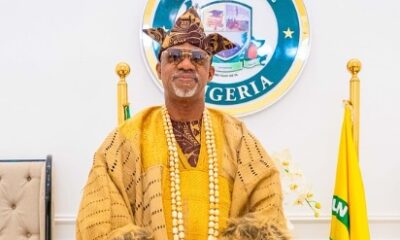
 Metro News2 days ago
Metro News2 days agoAbiodun vows to protect Ojude Oba festival’s rich cultural legacy
-

 National News1 day ago
National News1 day agoAPC National Woman Leader celebrates ‘historic wave’ of defections across Nigeria
-

 Sports2 days ago
Sports2 days agoBreaking: Obi speaks as Victor Osimhen rejects Al Hilal move
-

 National News2 days ago
National News2 days agoNSCDC CG orders immediate withdrawal of petition against police, seeks joint investigation
-

 Crime and Law1 day ago
Crime and Law1 day agoImmigration officer who rejected N10M bribe gets N5M gift
-

 Entertainment1 day ago
Entertainment1 day agoBayelsa businessman gifts 10 brand new cars to followers

